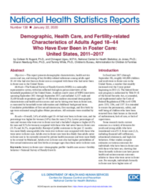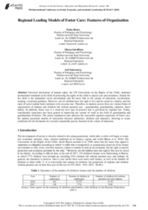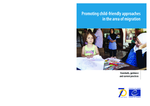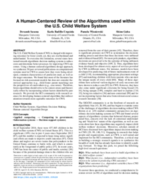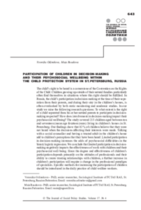Demographic, Health Care, and Fertility-related Characteristics of Adults Aged 18–44 Who Have Ever Been in Foster Care: United States, 2011–2017
This report presents demographic characteristics, health service access and use, and timing of key fertility-related milestones among adults aged 18–44 who had ever been in foster care as compared with those who had never been in foster care in the United States.

